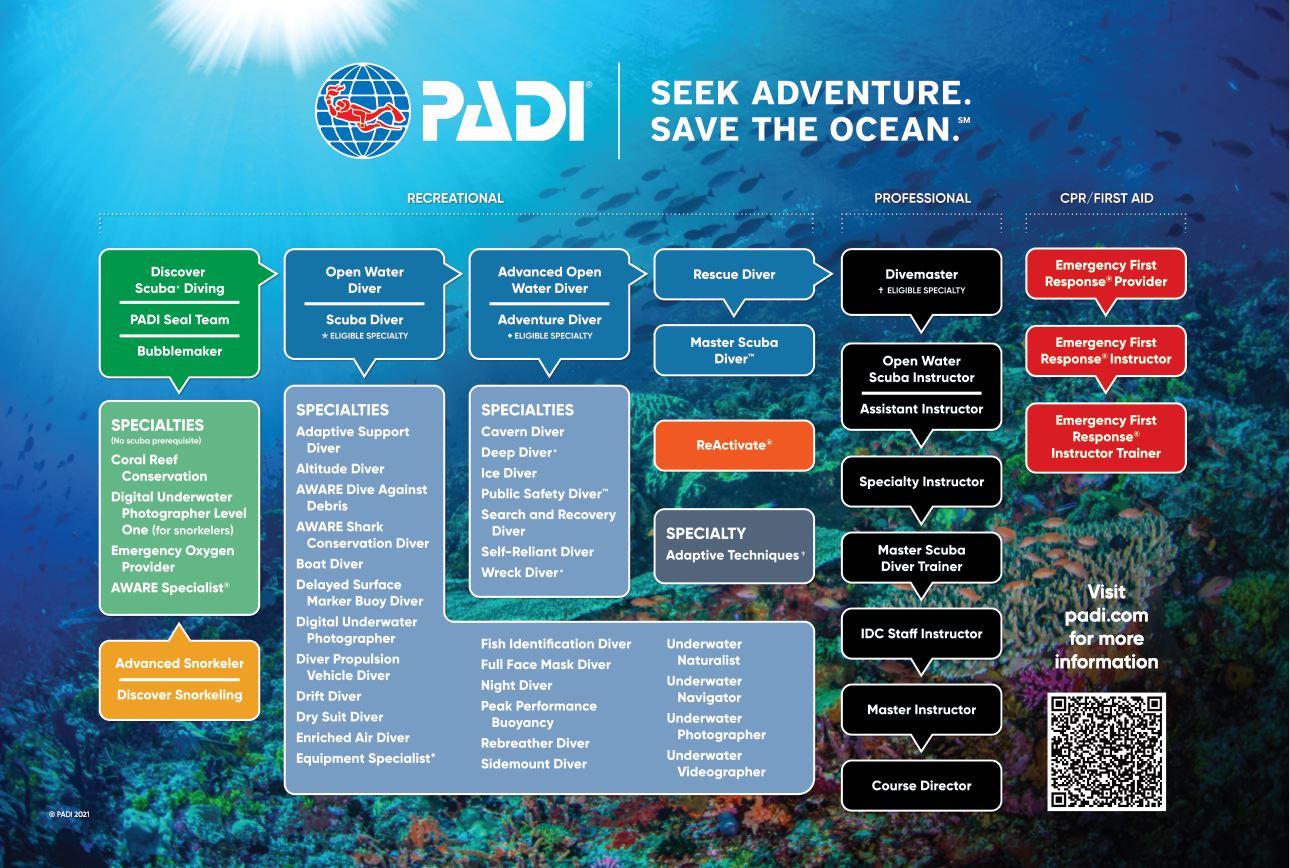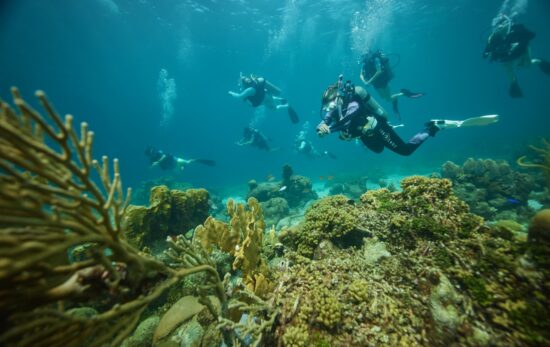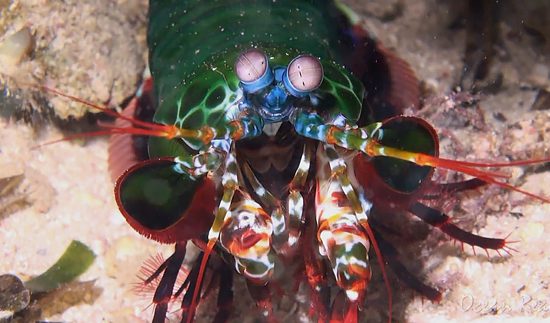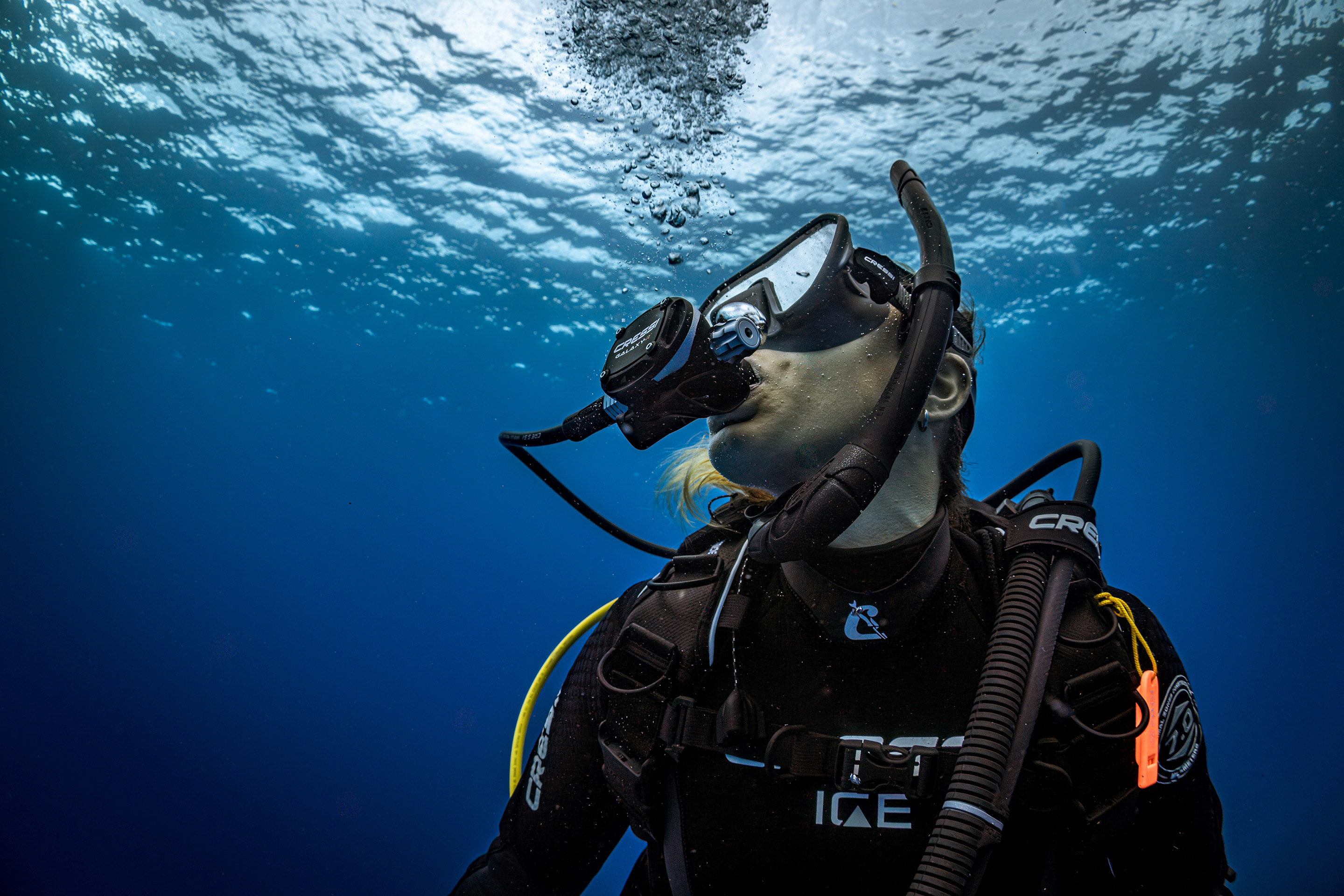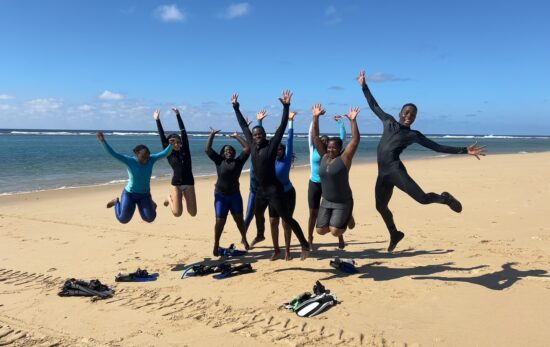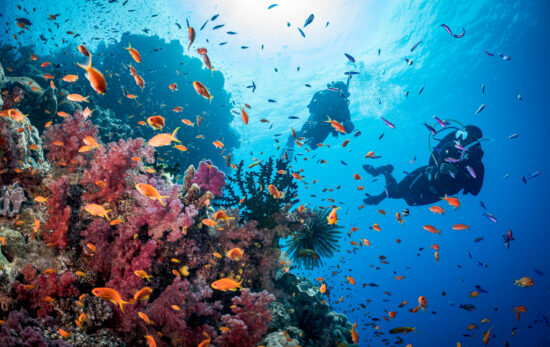PADI Divemaster, PADI Master Scuba Diver, Dive Master, Master Scuba Diver… sometimes it all sounds the same, doesn’t it? You may ask, “What’s the difference, and does it really matter?” While these two diving qualifications seem comprised of the same words, they are quite different.
If you’ve ever wondered what the difference is between PADI Divemaster (DM) and Master Scuba Diver (MSD), let us explain.
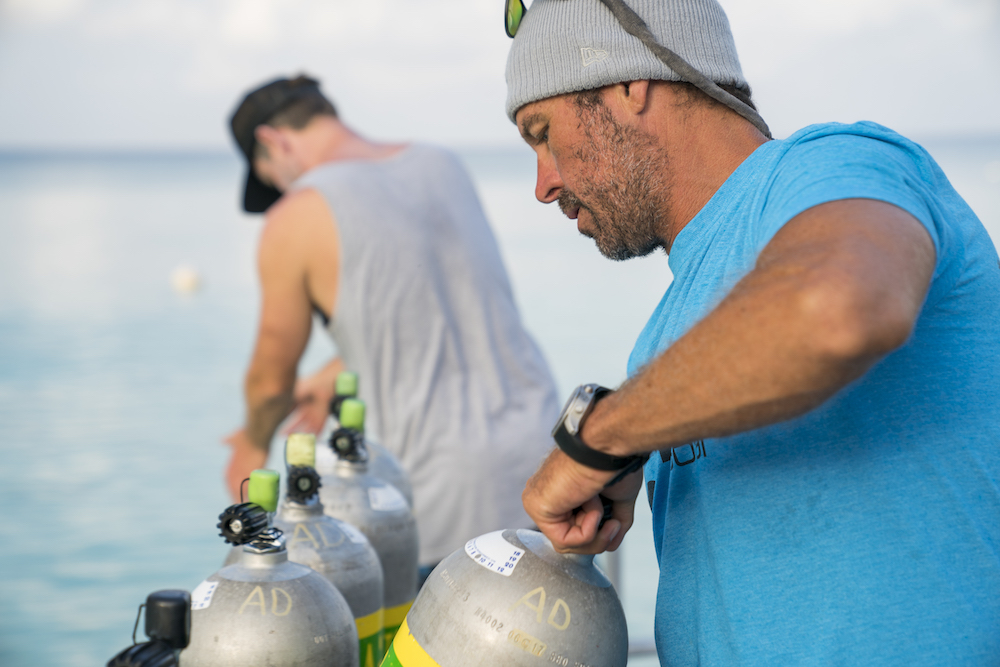
What is the Difference Between Master Scuba Diver and Divemaster?
Firstly, think about the relationship between a great home cook and an apprentice chef. Both know a lot about cooking, and both can make a delicious meal, but one prepares meals as a hobby, and the other is a professional chef in the making.
This analogy helps to explain the key difference between these two highly esteemed PADI ratings: Master Scuba Diver is recreational, while Divemaster is a professional level.
PADI Master Scuba Diver: A Recognition Rating
If someone is a Master Scuba Diver, that means they have significant experience and scuba training. They’ll have had their share of dive adventures and, as a result, spent lots of time in a variety of different underwater environments, from night diving to deeper dives.
What’s more, the experience is entirely your own. You can customize your MSD journey by choosing the five PADI Specialty courses that best match your personal interests and goals.
What does a Master Scuba Diver do?
Fewer than 2% of divers ever achieve this rating, which makes them an elite group. That’s why the Master Scuba Diver certification is known as the black belt of scuba diving! Pursuing the MSD rating has also changed people’s lives, helping them learn new skills, grow confidence, promote ocean conservation, and focus on their physical and mental wellbeing:
“Once I achieved my MSD rating, it certainly wasn’t just the rating (which by the way it is awesome to be recognized as the highest level in recreational diving), but my confidence as a diver literally took a turn for the better. I transformed from being a complacent diver to becoming more confident both above water and underwater.” – Sharon Loh
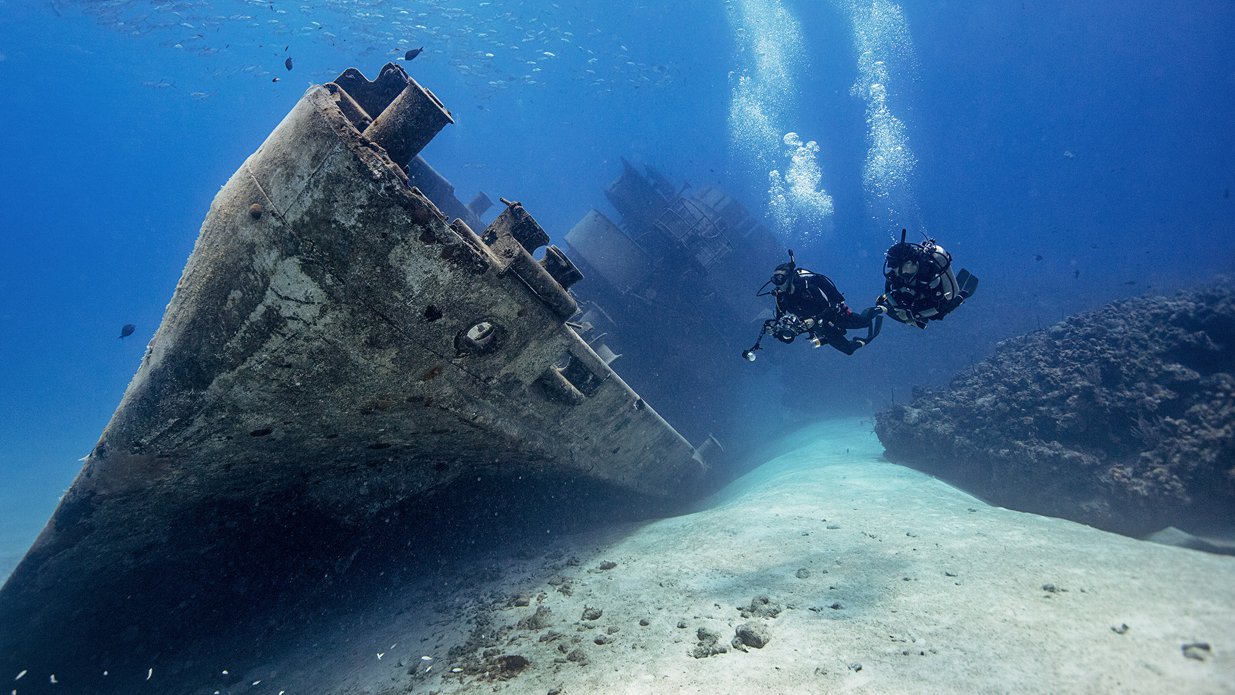
What it takes to become a PADI Master Scuba Diver:
- Be at least 12 years old (12-14 year olds earn Junior MSD)
- PADI (Junior) Advanced Open Water Diver certified
- PADI (Junior) Rescue Diver certified
- Earned five PADI Specialty Diver certifications
- Have logged a minimum of 50 dives
- Complete the MSD application
Note: PADI Master Scuba Divers are not professionals, and the PADI MSD rating does not qualify a diver to work in the diving industry. This is a recreational level that denotes the highest skill levels of those who are not professionals. If you’d like to be a professional diver, you’ll need to become a PADI Divemaster (see below)—which is why we are writing this blog!
PADI Divemaster: A Professional Dive Leader
Divemasters help instructors teach scuba courses and can have leadership responsibilities that mean you could work as a PADI Divemaster and earn an income. Working as a scuba diver means you’re a dive professional. However, becoming a PADI Divemaster is also a step up that offers more than a new career—it’s transformational.
Prerequisites to take the Divemaster course:
- Be at least 18 years old
- PADI Advanced Open Water Diver certified
- PADI Rescue Diver certified
- EFR® Primary and Secondary Care completed (or refreshed) within the past two years
- Medical clearance to dive
- 40 logged dives before starting the course
- 60 logged dives before finishing the course
What can a PADI Divemaster do?
- Assist with training and non-training related diving activities
- Conduct dive briefings
- Complete scuba refreshers, such as PADI ReActivate
- Teach the PADI Advanced Snorkeler course
- Assist in Discover Scuba Diving programs and lead subsequent dives after the first one has been done by an instructor
- Lead Discover Snorkeling and Discover Local Diving programs
- Call themselves a scuba diving professional
- Obtain professional scuba diving liability insurance
These are just some of the roles and responsibilities of a PADI Divemaster. In addition, with further training, you can teach even more, including some PADI Specialty courses or Discover Scuba Diving sessions which don’t need open-water dives.
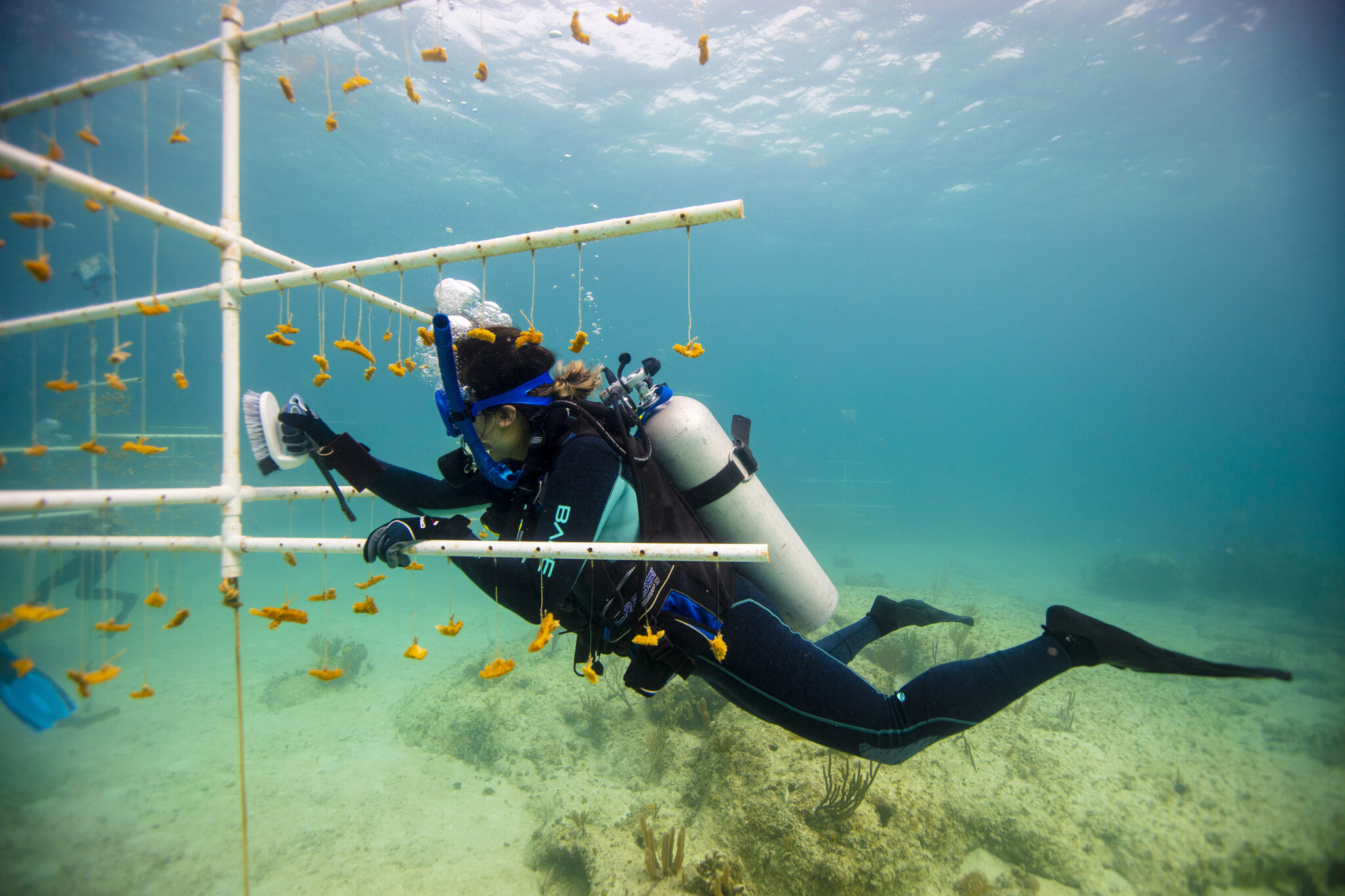
Being a PADI Divemaster also means you’ll be able to work professionally in other industries that rely on professional scuba divers, from marine biology and public safety diving, to crazier jobs, such as Hollywood stunt diving, performing in circus shows, or even retrieving golf balls!
What do you have to do to get the PADI Divemaster rating?
- Complete the Divemaster Knowledge Development sections and then pass the Divemaster Final Exam
- Pass five waterskills exercises and a diver rescue assessment
- Complete a dive-skills workshop and assessment
- Create an Emergency Assistance Plan
- Demonstrate practical skills, such as mapping, searches, and briefings
- Complete Divemaster-led program workshops, such as ReActivate and Discover Scuba Diving
- Complete practical assessments for assisting on scuba courses
- Demonstrate professionalism toward other team members, guest divers, and students
How long does it take to become a PADI Divemaster?
The time taken to achieve the Divemaster certification will depend on your schedule, personal progress, and the route chosen. For instance, you can opt to complete the course in a shorter time (similar to other certifications) or undertake a longer-term internship where you’ll get to study—and work—alongside real-life students. In short, the course can take anywhere from a few weeks to several months!
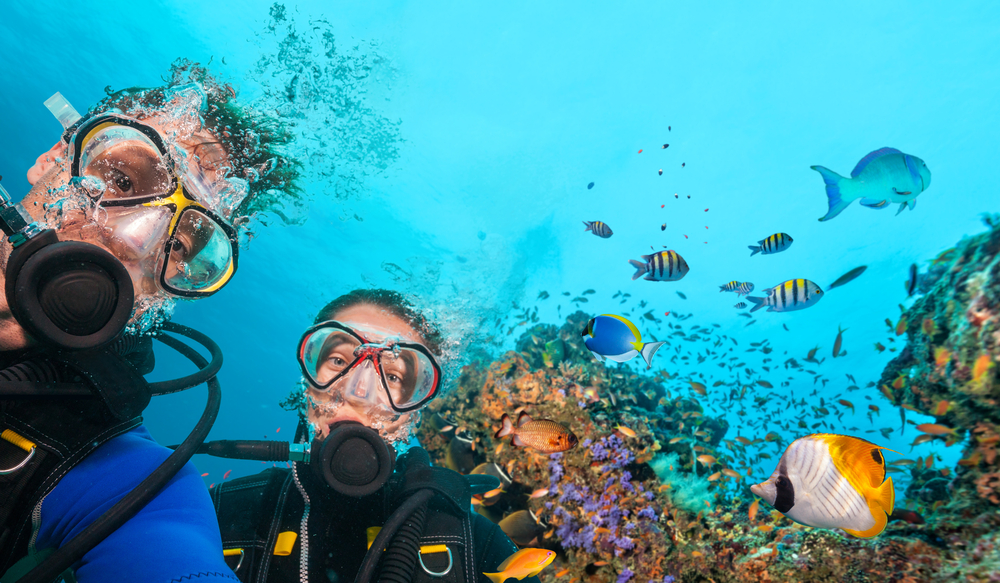
Master Scuba Diver vs. Divemaster
As you can see, both qualifications indicate highly experienced and knowledgeable scuba divers. But in summary, a PADI Master Scuba Diver is as far as you can go as a recreational diver—there is no superior level. Conversely, the PADI Divemaster certification is the very first rung on the professional diver ladder.
So, what is a Master Diver?
As if there weren’t enough similar-sounding names, some people also refer to Master Scuba Diver as the “PADI Master Diver” certification—but they are usually talking about the same thing. There is no official “PADI Master Diver” certification, and you can see the full list of PADI certifications below.
The PADI Course Flowchart
Deciding Which is Best for You—Divemaster or Master Scuba Diver?
When deciding between the PADI Master Scuba Diver rating or a PADI Divemaster course, it’s important to ask yourself the following questions:
Q. Do you want to work in diving either full-time, part-time, or in another capacity?
If the answer is yes, then you are best opting for the PADI Divemaster course. This is because you’ll need to be professionally certified before you can work in the diving industry or have other scuba diving jobs.
Q. Are you someone who likes to keep learning and progressing?
Again, if the answer is yes, then the Divemaster course may be your best choice. As the first rung on the PADI Professional ladder, it opens the door to even more learning and certification opportunities, such as progressing to Assistant Instructor and Open Water Scuba Instructor. There are also many divers who become Divemasters for the challenge but do not actively work in the diving industry.
Q. Are you looking to widen your skills, experience different types of diving, and feel a sense of accomplishment?
PADI Master Scuba Diver allows you to do all of these things. As you work toward this elite rating, you’ll undoubtedly increase your self-confidence as a diver while exploring a diverse world of diving tailored to your underwater interests.
Q. Do you like working with and helping people?
If you are a “people person” who enjoys helping others, then PADI Divemaster is a highly rewarding way to apply your passion and skills to enable others to reach their potential—whether that’s nailing mask-clearing skills, discovering new dive sites, or getting back into the water after a break.
Q. How old are you, and what’s your current diving experience?
You may have plans to become a professional diver, but depending on your age, current certification level, and number of logged dives, you may not be able to enroll in a PADI Divemaster course right away. If that’s the case, Master Scuba Diver could be an excellent way to expand your skills and build up dive experience in the meantime. You can even choose career-focused PADI Specialties that will come in extra handy once you start your Divemaster course, such as Search and Recovery or Underwater Navigation.
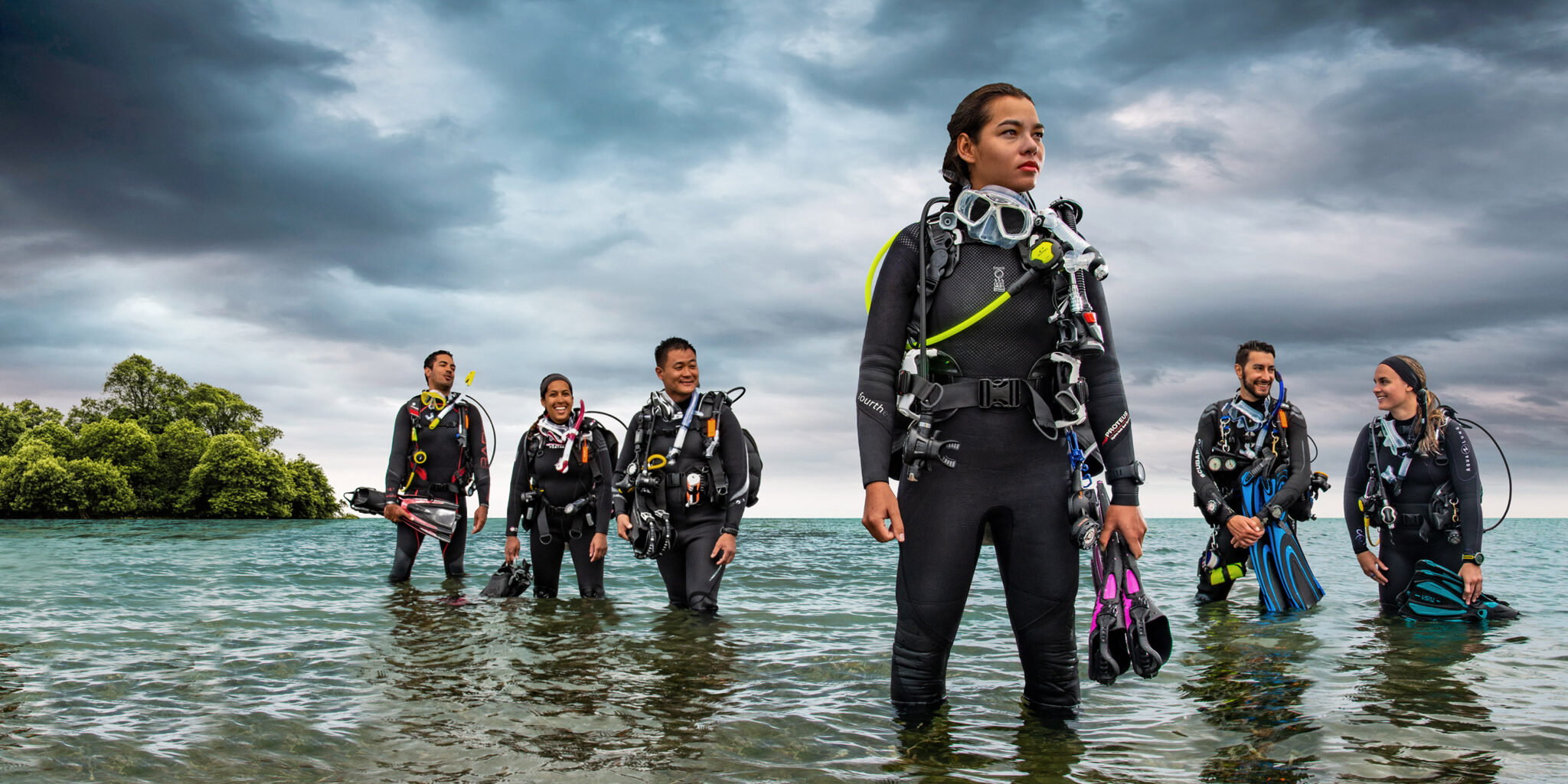
Take Your Next Step as a PADI Divemaster or Master Scuba Diver
Now you know the difference between these similar-sounding certifications! If you’d like to complete your Master Scuba Diver or find out more about how to become a PADI Divemaster, visit PADI eLearning or contact your local PADI Dive Shop today.

